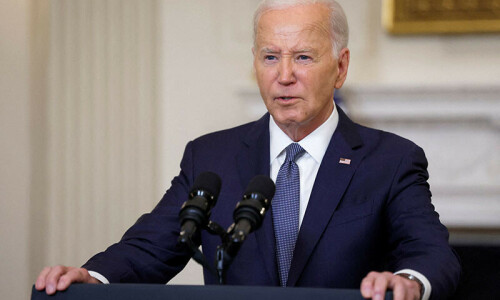IF you've been near the posh end of London's Piccadilly in the past couple of years, you might have been surprised to notice an even higher than usual proportion of people wearing nothing but black. You'd probably be more surprised to learn they weren't all fashion victims. They were academics.
In late 2007, the Limkokwing University of Creative Technology, founded by the Malaysian designer Tan Sri Dato' Dr Lim Kok Wing, opened its UK outpost in the heart of London's West End. It specialises in graphic design and advertising, and its academics have a dress code of head-to-toe black.
Think private higher education in the UK and most people get as far as Buckingham University before grinding to a halt. Yet there is a vast unseen and largely unreported parallel world of private universities in the UK and, though its name may not mean that much here, Limkokwing is one of the world's largest private universities and just one of many to have established a UK presence.
Private universities have not always had the best of track records. Many have under-qualified staff, under-resourced facilities, diplomas not worth the paper they are written on and get by as a front for an easy visa. However, the UK Border Agency has recently been sweeping out the worst offenders, leaving the market clear for the reputable players, such as Limkokwing, the London School of Commerce, the American InterContinental University and Amity, the Indian university which opened for business in London's Bedford Square last September.
These institutions primarily exist as a port of call for overseas students wanting to study for a term — or sometimes longer — in the UK. Yet there is a growing feeling that, thanks to the credit crunch and UK universities' desperation to lift the cap on tuition fees, the Law of Unintended Consequences may be about to kick in, with private universities becoming a more attractive option for home students.
“The traditional model has always been for British universities to set up satellites abroad,” says Dr Keith Sharp, head of the UK's Higher Education International Unit. “But now the empire is striking back. Foreign private universities are now establishing themselves in the UK and undercutting British universities in price while offering the exact same qualification.”
Postgraduate courses are the main battleground here. For years, UK universities have regarded international students as a cash cow, and their estimated value to the British economy is £5.3bn a year. But while that market is still very strong, there has been a definite shift towards the private sector. The University of Wales already validates postgraduate degrees for the London School of Commerce and from next September England's Anglia Ruskin University will do the same for Amity.
“Our students will follow the exact same MBA course that Anglia Ruskin offers,” says Dr Peter Taylor, director of Amity in London. “We are in no hurry to expand too quickly as our core business remains, offering a semester in London to students from our Indian campus, but we do expect to take about 100 in our first year and in time we would hope to increase that figure to nearer 150.”
The real difference between an MBA from Anglia Ruskin at its campus in Cambridge in the east of England and one from Amity in London is price. An overseas student at Anglia Ruskin could expect to pay in the region of £11,000 a year; at Amity the same student would pay just £7,800. So why would an overseas student want to pay £3,000 more for the same degree? And in its keenness to expand its brand and franchises isn't Anglia Ruskin in danger of muddying the home market?
“We don't think so,” says Professor Michael Thorne, Anglia Ruskin's vice-chancellor. “We see Amity as a different market, in that the major international student market in the UK is for London and this enables us to allow students to study our degrees in London.” Yet the postgraduate market could be merely a gentle preliminary shock in what might be a seismic shift in education. Because were the undergraduate market to open up, then the gloves would be well and truly off. Although at present few UK students choose private providers, a perfect storm is brewing that could change all that.
— The Guardian, London









































Dear visitor, the comments section is undergoing an overhaul and will return soon.